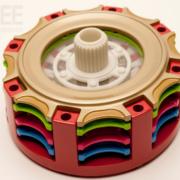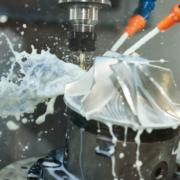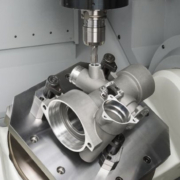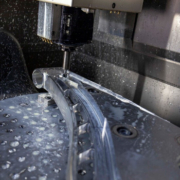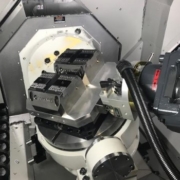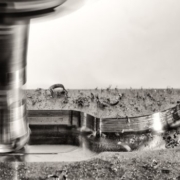Top Tips of CNC Plastic Machining
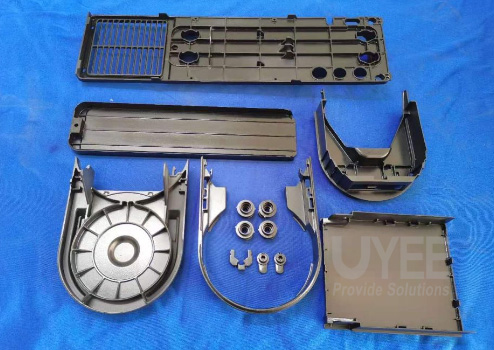
CNC machining has typically been thought of as a method of processing processes. However, the modern industry’s precision needs for parts made of all feasible materials are continually increasing. Thus, it served as a motivation for the advancement of CNC plastic machining technologies. As a result, it has now carved out a significant niche in the high precision, low volume, and prototype manufacture of plastic parts.
We can provide advanced CNC prototyping services and high temperature and high-strength plastic machining materials if you require plastic prototypes or bespoke parts, fusing complex components, or finishing and polishing services with low volume manufacturing.
We have provided plastic machining and plastic component fabrication for global customers at reasonable costs for over 20 years. Contact us immediately for additional information on how to help you start your new project.
Methods Of CNC Plastic Machining
There are numerous techniques for producing high-precision plastic parts. Cast, injection-molded, printed, or machined industrial-grade plastics are used today. The first three options are ideal for creating complex geometry items with a high level of surface polish. However, when it comes to achieving a tight tolerance or producing a mirror-like surface polish in practically any type of item, nothing beats machining.
Approximately 80% of the plastic pieces are CNC machined. It is the usual way to produce articles without a revolutionary axis. The remainder is normally turned on a lathe. Slotting or planning is used in several instances and is typically used to create inner grooves or rectangular holes. Finally, CNC machined items are polished or chemically processed to provide an excellent surface finish.
CNC Plastic Materials
Our ISO-certified CNC machine can perform Milling, Turning, Drilling, Sanding, Grinding, Punching, Tooling, and Welding. We can make high-performance plastics from various materials in sheets, round rods, and other shapes. Hundreds of CNC plastic materials are available, including Derlin, Nylon, PTFE, Uitem, Norly, PEEK, Torlon, Lexan®, Techtron® PPS, and Acetal.
Tips to Plastic Machining
Machine Tools
Let’s clear the air first and foremost. There are no plastic CNC machines. Metal machining equipment is used in all of the plastic-cutting machine tools. Their exact stiffness and power output enable them to process even tough plastics easily. However, because their stiffness is lower, woodworking machine tools will not perform as well.
Cutting Tools
Choosing the best plastic cutting tools is a difficult task. The reason for this is that the composition of plastic and composite materials varies greatly. For example, some polymers are reinforced with hard carbide particles or contain chemicals that improve flexibility, thermal resistance, or another attribute. All of this alters how plastic behaves in machining. Even the material’s colorant is significant because, depending on the type, the tint may change during machining owing to excessive heating.
Having stated that, it is clear that selecting the proper cutting tool shape for the machined plastic parts is essential. Milling tools, for example, are comparable to aluminum cutters with two flutes, but the cutting edges have sharper angles. Drills are a good example of this. Their major angle, which is normally 120 degrees for metals, is reduced to 60 degrees. As a result, the chips are smaller and easier to remove. However, you cannot use such a type of drill for metals. It’ll fall apart in a matter of minutes.
Part Setup
When constructing your plastic CNC block, remember this. Not the same as the metal is the plastic. You may easily create an enormous imprint on the surface by clamping the blank with too much pressure. The piece will most probably fracture if you apply too much power. It is preferable to use special pads manufactured from a more soft substance between the attachments and remove stains. The stiffness is part of the problem. Part of the problem is rigidity.
For instance, if you are drilling a rather large section ( imagine a notebook case). You must pay particular attention to how distant the drilling location is from the fixtures. During the procedure, the drill will try to pull the part up along its flutes, and if the institutions are too far away, the routine will succeed. It will either bend the part or tear the part away from the fittings.
The Cutting Parameters
Let’s look at the options for plastic cutting procedures using the CNC Milling Plastic case as an example. Excessive friction and plastic deformation of the workpiece instead of cutting are the key problems to be taken into account. To avoid the second problem, constantly maintain the cutters sharp and, if the material you’re using isn’t hard enough, freeze it. Low temperatures cause the plastic to become rigid and brittle.
To protect the chip from melting to the CNC machined item, keep the tool moving and avoid letting it sit in one area for too long. Remove the chip as quickly as possible. As a result, the feeds for plastic processing must be large, even aggressive. With a higher feed rate, spindle speeds must be faster as well. The estimated speed is approximately three times that of aluminum feeds, with a comparable cutting speed.
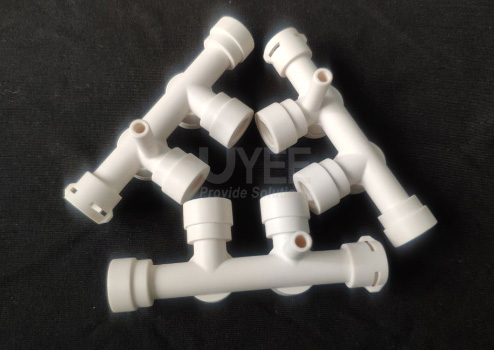
The Role of Plastics in CNC Prototyping
Plastic machining services are inextricably linked to the art of CNC prototyping. Polymer materials are ideal for prototyping and technical testing. The reason for this is that plastics are relatively easy to machine. If the heating or molding equipment you have is not available, producing CNC components from plastic blocks are an easy and rapid approach to obtain these prototypes. In addition, you may utilize the same common equipment used to process metals, giving you a lot of versatility. The cutting rates and feeds will be significantly faster, which means that your product sample may be tested and placed on the market in front of your competitor.
CNC Plastic Machining Services
Many CNC Plastic Machining Services have sprung up because plastic components demand prototyping and customized CNC plastic prototype production. They unquestionably speed up and simplify the manufacturing process for all parties involved. It is especially useful if you have no prior expertise in cutting plastic or making polymer parts in general.
Manufacturing specialists, machinists, and design for manufacturability engineers are all together in such machining shops. They will not only be able to obtain a professional and aesthetically pleasing prototype, but they will also be able to bring out any design flaws, which can drastically save manufacturing time and cost.

